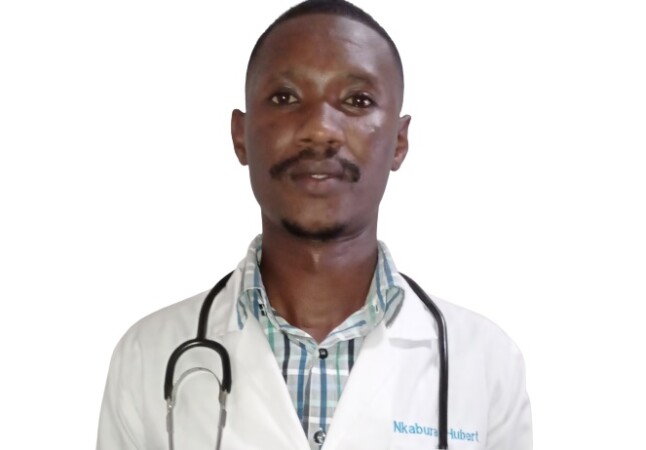Diabetes is a serious chronic disease of slow progression that occurs either when the pancreas doesn’t produce enough insulin or when the body doesn’t effectively utilize the insulin it produces.
Diabetes has steadily been on the rise and is therefore no longer the disease of the rich as previously thought to be by many of us. The steady increase in the prevalence of diabetes has been remarkably seen in the low and middle-income countries (LMICs) including Uganda.
According to World Health Organization (WHO, 2021), the number of people with diabetes rose from 108 million in 1980 to 422 million in 2014 with about 1.5 million deaths directly attributed to diabetes each year. Diabetes of all types may lead to complications in many parts of the body which can increase the risk of dying prematurely.
Type 1 diabetes: (previously known as insulin-dependent, juvenile or childhood on-set diabetes) is characterized by inefficient production of insulin in the body. People with this type of diabetes require a daily injection of insulin to regulate the amount of glucose in their blood. Without insulin, they can’t survive. Its cause is not known and therefore currently not preventable.
Type 2 diabetes: (previously called non-insulin-dependent or adult on-set diabetes) which results from the body’s ineffective use of insulin. This type accounts for the majority of the population with diabetes around the world. For many years, this type has predominantly been seen in adults but it has begun to occur in children of late.
Gestation Diabetes Mellitus (GDM): Is usually a temporally form of diabetes that occurs in pregnancy but carries long term effects of type 2 diabetes. Pregnant women with GDM are at increased risk of some complications during pregnancy and delivery as well as their infants. With an estimated GDM prevalence of 9% across Sub Sahara Africa by a recent systematic review. GDM diagnosis is done through prenatal screening rather than reported symptoms.
Risk factors for diabetes: Generally, type 1 diabetes is as a result of complex interactions between genes and environmental factors though no specific environmental risk factors have been shown to cause a number of cases. Overweight and obesity are the strongest risk factors for type 2 diabetes, ethnicity, family history of diabetes, genetics and metabolic factors, previous GDM and old age.
Effects/complications: Diabetes when not well managed can damage blood vessels, the heart, kidneys, eyes and nerves leading to premature death. Uncontrolled diabetes in pregnancy have devastating effects on both the mother and child such as difficulty delivery, risk of fetal loss, congenital abnormalities, still births, maternal morbidity and mortality.
Diabetes creates a large economic burden on the global health care system. Patients are more likely to incur catastrophic personal health expenditure. The burden can be further measured as direct or indirect costs associated with productivity loss, premature deaths and the negative impact on the nation’s gross domestic product (GDP).
The International Diabetes Federation (IDF) estimated that the global health care spending on diabetes more than tripled over the period from 2003 to 2013. Another study estimates that losses in GDP worldwide from 2011 to 2030 including both direct and indirect costs of diabetes will total US$ 1.7 trillion, comprising of US$ 900 billion for high-income countries and US$ 800 billion for LMICs.
Conclusion and recommendations: I do acknowledge the imminent efforts on the fight against HIV and Covid-19 pandemics, however, there’s urgent need to up our game on the fight against non communicable diseases (NCDs) and diabetes in particular. I therefore strongly recommend the government of Uganda through ministry of health and its partners to embrace public health measures right from the grass root so as to sensitize our people about NCDs.
There’s absolutely unmet need to transition our efforts from curative medicine to preventive medicine as a matter of priority by the government of Uganda and various stakeholders. Imagine if we could reduce the number of overweight and obese people in our communities just through simple well packaged messages by professionals like appropriate nutrition and physical activity.
There’s no way we can keep preaching of operation wealth creation to a population hit by NCDs which would be preventable and lead to heavy expenses for families and households. For us to be able to uplift the standards of our people through government development programs like OWC, emyooga, parish model etc, we need to first ensure that we have healthy and model households, model villages free from these preventable NCDs which take most of the family/individual earnings by treating them.
Lastly, I would recommend that government employees such as community development officers (CDOs) should have a basic training in community health or public health to continuously be able to sensitize the people on these diseases.
Do you have a story or an opinion to share? Email us on: dailyexpressug@gmail.com Or follow the Daily Express on X Platform or WhatsApp for the latest updates.
The author; Nkabura Hubert is a Medical Clinical Officer, NCDs Activist and Public Health Trainee at Uganda Martyrs University.
Email: hubbyndik@gmail.com | Tel: +256775015985

